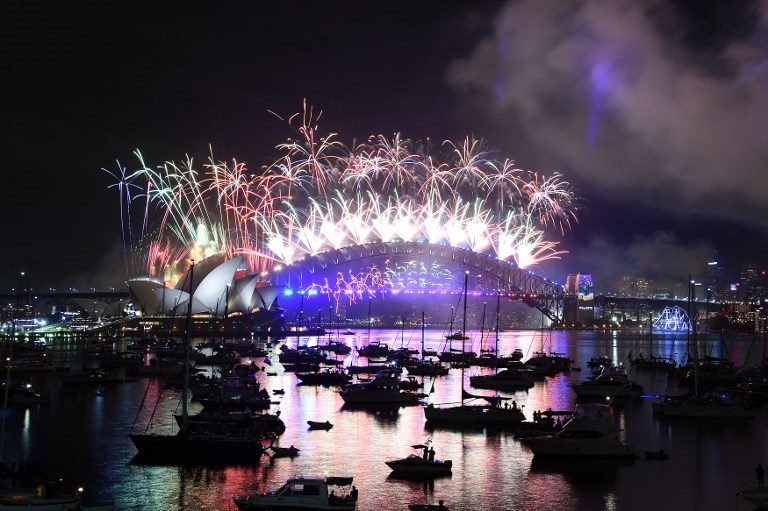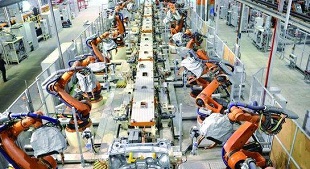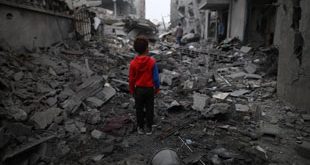
Sydney, Australia | AFP |
Australia rang in the new year Sunday with a spectacular fireworks display in Sydney, sending rainbow-coloured showers into the night sky and defying the global terror attacks that cast a pall over 2016.
Around 1.5 million people packed Australia’s biggest city to watch as the midnight fireworks erupted from Sydney Harbour Bridge, with the extravaganza beamed to television sets and phones across the world.
The visual feast paid tribute to some of the international musical legends who died this year, including David Bowie and Prince, with purple rain pouring off the bridge in an early display and firework “stars” soaring high above the harbour.
2016 has seen repeated bloodshed, most recently a deadly truck attack at a Berlin Christmas market, a similar incident on Bastille Day in France that killed 86, and atrocities in Turkey and the Middle East.
But the New South Wales state premier urged “business as usual”, as a larger-than-usual crowd gathered due to the weekend timing and warm weather.
“My encouragement to everyone is to enjoy New Year’s Eve… in the knowledge that police are doing everything they can to keep us safe,” Premier Mike Baird said.
Around 2,000 extra officers have been deployed in Sydney after a man was arrested for allegedly making online threats against the celebrations.
There were a number of other reported threats this holiday period, in Asia-Pacific and elsewhere.
In Melbourne, police foiled a “significant” Islamic State-inspired Christmas Day terror plot.
Indonesia said it foiled plans by an IS-linked group for a Christmas-time suicide bombing, and 52 died in the Philippines in bomb attacks blamed on Islamist militants.
Israel on Friday issued a warning of imminent “terrorist attacks” to tourists and western targets in India.
Despite the terror fears, revellers in Hong Kong and Taipei were expected to throng city streets to watch firework performances.
In Japan, shoppers filled markets to buy tuna and crabs — seen as expensive items for special feasts — for New Year’s Day family gatherings.
– Truck blockades –
Security concerns have hit many New Year events with truck blockades a new tactic to try to prevent vehicles ploughing into crowds, with Sydney using garbage trucks.
The German capital has beefed up security after the December 19 carnage, deploying more police, some armed with machine-guns.
“This year, what’s new is that we will place concrete blocks and position heavy armoured vehicles at the entrances” to the zone around Brandenburg Gate, a police spokesman said.
In Paris, there will be a firework display again, after muted 2015 celebrations following the massacre of 130 people.
Nearly 100,000 police, gendarmes and soldiers will be deployed across France against the jihadist threat.
With more than a million people expected to turn out to watch the ball drop in Times Square, New York is deploying 165 “blocker” trucks and some 7,000 police.
Rome has deployed armoured vehicles and greater numbers of security forces around the Coliseum and St Peter’s Square, where Pope Francis will celebrate a “Te Deum” hymn of thanksgiving.
Moscow police will deploy more than 5,000 officers backed by thousands more from the new national guard and volunteer militia to maintain order.
Thousands traditionally gather in Red Square, but for the second year in a row, the area will be open solely to 6,000 invitees.
London will have 3,000 officers on patrol with crowds flocking to line the banks of the Thames to watch the fireworks.
Up to two million people are expected to party at Rio’s Copacabana beach. But with Brazil mired in its worst recession in a century, the fireworks have been cut to just 12 minutes.
Normally boisterous Bangkok will see in the new year on a more sombre note as the nation grieves for King Bhumibol Adulyadej, who died in October.
And, at the stroke of midnight, the celebrations will last one second longer –- a leap second -– decreed by the International Earth Rotation and Reference Systems Service to allow astronomical time to catch up with atomic clocks that have called the hour since 1967.
 The Independent Uganda: You get the Truth we Pay the Price
The Independent Uganda: You get the Truth we Pay the Price






